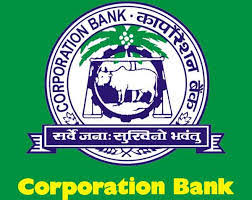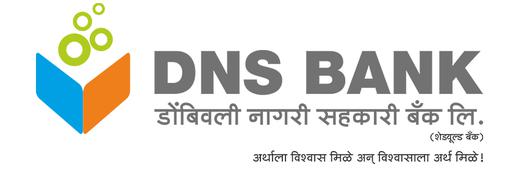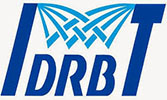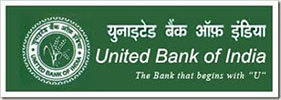- RBI Authority: IFSC Codes are allocated by RBI using a standardized system for online fund transfers, not assigned by individual banks.
- 1,30,000 Codes: As of now, RBI has assigned 1,30,000 IFSC Codes to various banks and branches.
- Sublet Branches: Giant banks and their branches have unique IFSC Codes, while smaller banks, such as cooperative banks, may not have easily identifiable codes. They often use the codes of larger banks to process the transactions.
- RBI’s Complete Authority: RBI has complete authority over IFSC codes right from generating, altering, assigning, to cancelling.
- Potential for Error: If you enter an incorrect IFSC code, the transaction may fail, and the amount may revert to the sender’s account. In this case, you will get your money back, but it may take up a lot of time.
- Inimitability: Every bank is provided with a unique IFSC Code. You can think of it as the PNR No. of the train that is given differently to each passenger. The comforting prospect is that it ensures quick, hassle-free electronic funding.
- IFSC Codes for Payment Banks: RBI has introduced a new model where Payment banks can have their own Individual IFSC codes. However, these banks are specifically to accept deposits up to Rs. 1 lakh and offer facilities such as net banking and mobile banking.
- Four Players in Payment Banks: There were four players, namely, Airtel, India Posts, PayTM, and Fino. These are awarded payment bank licenses as their own individual IFSC codes.
IFSC Code Search
Find IFSC Code
- AB Bank
- Abhyudaya Co-operative Bank Ltd
- Abu Dhabi Commercial Bank
- Aditya Birla Payment Bank
- Ahmedabad Mercantile Co-Op. Bank Ltd.
- Airtel Payments Bank Limited
- Allahabad Bank
- Almora Urban Co-Op Bank
- Ambarnath Jai-Hind Co-Op Bank Ltd.
- American Express Bank
- Andhra Bank
- Andhra Pradesh Grameena Vikas Bank
- Andhra Pragathi Grameena Bank
- Apna Sahakari Bank
- AU Small Finance Bank Ltd.
- Australia And New Zealand Banking Group
- Axis Bank
- Bandhan Bank
- Bank Internasional Indonesia (Maya Bank Indonesia)
- Bank Of America
- Bank Of Bahrain And Kuwait
- Bank Of Baroda (BOB)
- Bank Of Ceylon
- Bank Of India (BOI)
- Bank Of Maharashtra
- Bank Of Rajasthan
- Barclays Bank
- Bassein Catholic Co-operative Bank
- Bhagini Nivedita Sahakari Bank Ltd. Pune
- Bharatiya Mahila Bank (BMB)
- BNP Paribas Bank
- Canara Bank
- Capital Small Finance Bank
- Catholic Syrian Bank
- Central Bank Of India
- Citibank
- Citizen Credit Co-operative Bank
- City Union Bank
- Commonwealth Bank Of Australia
- Corporation Bank
- Cosmos Bank
- Credit Agricole Corporate And Investment Bank
- Credit Suisse Bank
- CTBC Bank
- DBS Bank
- Delhi State Co-Op Bank
- Dena Bank
- Deogiri Nagari Sahakari Bank Ltd. Aurangabad
- Deposit Insurance And Credit Guarantee Corporation Bank
- Deutsche Bank
- Development Credit Bank
- Dhanlaxmi Bank
- DMK Jaoli Bank
- Doha Bank QSC
- Dombivli Nagari Sahakari Bank
- Durgapur Steel Peoples Co Op Bank Ltd.
- Emirates NBD Bank P J S C
- Equitas Small Finance Bank Limited
- ESAF Small Finance Bank Ltd.
- Exim Bank (Export-Import Bank Of India)
- Federal Bank
- Fincare Small Finance Bank
- Fino Payments Bank
- First Rand Bank
- G P Parsik Bank
- Gurgaon Gramin Bank
- HDFC Bank
- Himachal Pradesh State Co-Operative Bank Ltd.
- HSBC Bank
- HSBC Bank Oman
- ICICI Bank
- IDBI Bank
- IDFC First BANK
- IDRBT Bank
- Idukki District Co Operative Bank Ltd
- India Post Payments Bank
- Indian Bank
- Indian Overseas Bank (IOB)
- IndusInd Bank
- Industrial And Commercial Bank Of China
- Industrial Bank Of Korea
- ING Vysya Bank
- Irinjalakuda Town Co-Operative Bank Ltd
- Jalgaon Janata Sahakari Bank
- Jammu And Kashmir Bank
- Jana Small Finance Bank
- Janakalyan Sahakari Bank
- Janaseva Sahakari Bank (Borivli)
- Janaseva Sahakari Bank (pune)
- Janata Sahakari Bank Ltd.
- Jio Payments Bank
- JPMorgan Chase Bank
- Kallappanna Awade Ichalkaranji Janata Sahakari Bank
- Kalupur Commercial Cooperative Bank
- Kalyan Janata Sahakari Bank
- Kangra Co-Operative Bank
- Kapol Co-Operative Bank
- Karad Urban Co-Operative Bank
- Karnataka Bank
- Karnataka Vikas Grameena Bank
- Karur Vysya Bank
- Kaveri Grameena Bank
- KEB Hana Bank
- Kerala Gramin Bank
- Kookmin Bank
- Kotak Mahindra Bank
- Kozhikode District Co- Operative Bank
- Krung Thai Bank
- Lakshmi Vilas Bank
- Mahanagar Co-Operative Bank
- Maharashtra Gramin Bank
- Maharashtra State Co-Op. Bank
- Mahesh Sahakari Bank Ltd. Pune
- Mashreq Bank
- Mehsana Urban Co-Op. Bank
- Mizuho Corporate Bank
- Model Co-operative Bank Ltd.
- Mumbai District Central Co-Op. Bank
- Municipal Co-Operative Bank
- Muslim Co Op Bank
- Nagar Urban Co-Op. Bank
- Nagpur Nagarik Sahakari Bank
- Nainital Bank
- Nasik Merchants Co-Op. Bank
- National Australia Bank
- National Bank For Agriculture And Rural Development
- National Bank Of Abu Dhabi PJSC
- Nav Jeevan Co Op Bank Ltd.
- New India Co-Op. Bank
- Nilambur Co Operative Urban Bank
- NKGSB Co-Op. Bank
- North East Small Finance Bank
- North Malabar Gramin Bank
- NSDL Payment Bank
- Nutan Nagarik Sahakari Bank Ltd.
- Odisha State Cooperative Bank
- Oman International Bank
- Oriental Bank Of Commerce (OBC)
- Paytm Payments Bank Ltd.
- Pragathi Krishna Gramin Bank
- Prathama Bank
- Prime Co- Operative Bank Ltd.
- Punjab & Sind Bank
- Punjab And Maharashtra Co-Op. Bank
- Punjab National Bank (PNB)
- Pusad Urban Co Operative Bank Ltd.
- Qatar National Bank SAQ
- Rabobank
- Rajarambapu Sahakari Bank Ltd.
- Rajarshi Shahu Sahakari Bank
- Rajasthan Marudhara Gramin Bank
- Rajasthan State Co-operative Bank
- Rajgurunagar Sahakari Bank
- Rajkot Nagarik Sahakari Bank
- RBL Bank (Ratnakar Bank)
- Reserve Bank Of India (RBI)
- Sahebrao Deshmukh Co-Op Bank
- Samarth Sahakari Bank Ltd.
- Sant Sopankaka Sahakari Bank Ltd
- Saraspur Nagrik Co Operative Bank Ltd.
- Saraswat Bank
- SBER Bank
- Scotia Bank
- Seva Vikas Co-op Bank
- Shikshak Sahakari Bank
- Shinhan Bank
- Shivalik Mercantile Cooperative Bank Ltd.
- Shri Chhatrapati Rajarshi Shahu Urban Co-op Bank
- Shri Veershaiv Co-Op Bank Ltd.
- SIR M. Visvesvaraya Co-Op Bank Ltd.
- Small Industry Development Bank Of India
- Societe Generale
- Solapur Janata Sahakari Bank
- Sonali Bank Ltd.
- South Indian Bank
- Standard Chartered Bank (SCB)
- State Bank Of Bikaner & Jaipur
- State Bank Of Hyderabad (SBH)
- State Bank Of India (SBI)
- State Bank Of Mauritius
- State Bank Of Mysore
- State Bank Of Patiala
- State Bank Of Travancore
- SUCO Bank
- Sumitomo Mitsui Banking Corporation
- Surat National Co-Op Bank(SNCB)
- Suryoday Small Finance Bank Limited
- Syndicate Bank
- Tamilnad Mercantile Bank Limited
- Telangana State Co-Operative Apex Bank Ltd.
- Textile Traders Co-Operative Bank Ltd
- Thane Bharat Sahakari Bank
- The A P Mahesh Co-Op Urban Bank
- The Ahmednagar Merchant Co-Op Bank Ltd.
- The Ajara Urban Cooperative Bank Limited, Ajara
- The Akola District Central Co-Op. Bank
- The Akola Janata Commercial Co-Op. Bank
- The Andhra Pradesh State Co-Op Bank
- The Bank Of Tokyo-Mitsubishi UFJ
- The Baramati Sahakari Bank Ltd.
- The Bharat Co-operative Bank Mumbai
- The Gadchiroli District Central Co-Op Bank
- The Greater Bombay Co-op Bank
- The Gujarat State Co-Op Bank
- The Haryana State Co-Op Apex Bank Ltd.
- The Hasti Co-Op. Bank
- The Jalgaon Peoples Co-Op Bank
- The Kangra Central Co-Op Bank
- The Karnataka State Co-Op Apex Bank
- The Kerala State Co Operative Bank Ltd
- The Kurmanchal Nagar Sahakari Bank
- The Malkapur Urban Co Op Bank Ltd. Malkapur
- The Navnirman Co-Op Bank Ltd.
- The Pandharpur Urban Co-Op Bank
- The Royal Bank Of Scotland
- The Satara Sahakari Bank Ltd.
- The Shamrao Vithal Co-operative Bank
- The Sindhudurg District Central Co- Op Bank Ltd.
- The Surat District Co-Op Bank
- The Surat Peoples Co-Op Bank
- The Sutex Co-Op Bank
- The Tamilnadu State Apex Co-Op Bank
- The Thane District Central Co-Op Bank
- The Udaipur Urban Cooperative Bank
- The Urban Co Operative Bank Ltd, Perinthalmanna
- The Varachha Co- Operative Bank
- The Vijay Co Operative Bank
- The Vishweshwar Sahakari Bank
- The West Bangal State Co-Operative Bank
- Thrissur District Co Op Bank Ltd.
- TJSB Sahakari Bank
- Tumkur Grain Merchants Co-Op Bank
- UBS AG Bank
- UCO Bank
- Ujjivan Small Finance Bank Ltd.
- Union Bank Of India
- United Bank Of India
- United Overseas Bank
- Utkarsh Small Finance Bank
- Uttar Pradesh Co Operative Bank Ltd.
- Vasai Janata Sahakari Bank Ltd.
- Vasai Vikas Sahakari Bank
- Vijaya Bank
- VTB Bank
- Westpac Banking Corporation
- Woori Bank
- Yes Bank
- Zila Sahakari Bank Gaziabad
- Zoroastrian Bank
All Banks
-
![bank]() AB Bank
AB Bank
-
![bank]() Abhyudaya Co-operative Bank Ltd
Abhyudaya Co-operative Bank Ltd
-
![bank]() Abu Dhabi Commercial Bank
Abu Dhabi Commercial Bank
-
![bank]() Aditya Birla Payment Bank
Aditya Birla Payment Bank
-
![bank]() Ahmedabad Mercantile Co-Op. Bank Ltd.
Ahmedabad Mercantile Co-Op. Bank Ltd.
-
![bank]() Airtel Payments Bank Limited
Airtel Payments Bank Limited
-
![bank]() Allahabad Bank
Allahabad Bank
-
![bank]() Almora Urban Co-Op Bank
Almora Urban Co-Op Bank
-
![bank]() Ambarnath Jai-Hind Co-Op Bank Ltd.
Ambarnath Jai-Hind Co-Op Bank Ltd.
-
![bank]() American Express Bank
American Express Bank
-
![bank]() Andhra Bank
Andhra Bank
-
![bank]() Andhra Pradesh Grameena Vikas Bank
Andhra Pradesh Grameena Vikas Bank
-
![bank]() Andhra Pragathi Grameena Bank
Andhra Pragathi Grameena Bank
-
![bank]() Apna Sahakari Bank
Apna Sahakari Bank
-
![bank]() AU Small Finance Bank Ltd.
AU Small Finance Bank Ltd.
-
![bank]() Australia And New Zealand Banking Group
Australia And New Zealand Banking Group
-
![bank]() Axis Bank
Axis Bank
-
![bank]() Bandhan Bank
Bandhan Bank
-
![bank]() Bank Internasional Indonesia (Maya Bank Indonesia)
Bank Internasional Indonesia (Maya Bank Indonesia)
-
![bank]() Bank Of America
Bank Of America
-
![bank]() Bank Of Bahrain And Kuwait
Bank Of Bahrain And Kuwait
-
![bank]() Bank Of Baroda (BOB)
Bank Of Baroda (BOB)
-
![bank]() Bank Of Ceylon
Bank Of Ceylon
-
![bank]() Bank Of India (BOI)
Bank Of India (BOI)
-
![bank]() Bank Of Maharashtra
Bank Of Maharashtra
-
![bank]() Bank Of Rajasthan
Bank Of Rajasthan
-
![bank]() Barclays Bank
Barclays Bank
-
![bank]() Bassein Catholic Co-operative Bank
Bassein Catholic Co-operative Bank
-
![bank]() Bhagini Nivedita Sahakari Bank Ltd. Pune
Bhagini Nivedita Sahakari Bank Ltd. Pune
-
![bank]() Bharatiya Mahila Bank (BMB)
Bharatiya Mahila Bank (BMB)
-
![bank]() BNP Paribas Bank
BNP Paribas Bank
-
![bank]() Canara Bank
Canara Bank
-
![bank]() Capital Small Finance Bank
Capital Small Finance Bank
-
![bank]() Catholic Syrian Bank
Catholic Syrian Bank
-
![bank]() Central Bank Of India
Central Bank Of India
-
![bank]() Citibank
Citibank
-
![bank]() Citizen Credit Co-operative Bank
Citizen Credit Co-operative Bank
-
![bank]() City Union Bank
City Union Bank
-
![bank]() Commonwealth Bank Of Australia
Commonwealth Bank Of Australia
-
![bank]() Corporation Bank
Corporation Bank
-
![bank]() Cosmos Bank
Cosmos Bank
-
![bank]() Credit Agricole Corporate And Investment Bank
Credit Agricole Corporate And Investment Bank
-
![bank]() Credit Suisse Bank
Credit Suisse Bank
-
![bank]() CTBC Bank
CTBC Bank
-
![bank]() DBS Bank
DBS Bank
-
![bank]() Delhi State Co-Op Bank
Delhi State Co-Op Bank
-
![bank]() Dena Bank
Dena Bank
-
![bank]() Deogiri Nagari Sahakari Bank Ltd. Aurangabad
Deogiri Nagari Sahakari Bank Ltd. Aurangabad
-
![bank]() Deposit Insurance And Credit Guarantee Corporation Bank
Deposit Insurance And Credit Guarantee Corporation Bank
-
![bank]() Deutsche Bank
Deutsche Bank
-
![bank]() Development Credit Bank
Development Credit Bank
-
![bank]() Dhanlaxmi Bank
Dhanlaxmi Bank
-
![bank]() DMK Jaoli Bank
DMK Jaoli Bank
-
![bank]() Doha Bank QSC
Doha Bank QSC
-
![bank]() Dombivli Nagari Sahakari Bank
Dombivli Nagari Sahakari Bank
-
![bank]() Durgapur Steel Peoples Co Op Bank Ltd.
Durgapur Steel Peoples Co Op Bank Ltd.
-
![bank]() Emirates NBD Bank P J S C
Emirates NBD Bank P J S C
-
![bank]() Equitas Small Finance Bank Limited
Equitas Small Finance Bank Limited
-
![bank]() ESAF Small Finance Bank Ltd.
ESAF Small Finance Bank Ltd.
-
![bank]() Exim Bank (Export-Import Bank Of India)
Exim Bank (Export-Import Bank Of India)
-
![bank]() Federal Bank
Federal Bank
-
![bank]() Fincare Small Finance Bank
Fincare Small Finance Bank
-
![bank]() Fino Payments Bank
Fino Payments Bank
-
![bank]() First Rand Bank
First Rand Bank
-
![bank]() G P Parsik Bank
G P Parsik Bank
-
![bank]() Gurgaon Gramin Bank
Gurgaon Gramin Bank
-
![bank]() HDFC Bank
HDFC Bank
-
![bank]() Himachal Pradesh State Co-Operative Bank Ltd.
Himachal Pradesh State Co-Operative Bank Ltd.
-
![bank]() HSBC Bank
HSBC Bank
-
![bank]() HSBC Bank Oman
HSBC Bank Oman
-
![bank]() ICICI Bank
ICICI Bank
-
![bank]() IDBI Bank
IDBI Bank
-
![bank]() IDFC First BANK
IDFC First BANK
-
![bank]() IDRBT Bank
IDRBT Bank
-
![bank]() Idukki District Co Operative Bank Ltd
Idukki District Co Operative Bank Ltd
-
![bank]() India Post Payments Bank
India Post Payments Bank
-
![bank]() Indian Bank
Indian Bank
-
![bank]() Indian Overseas Bank (IOB)
Indian Overseas Bank (IOB)
-
![bank]() IndusInd Bank
IndusInd Bank
-
![bank]() Industrial And Commercial Bank Of China
Industrial And Commercial Bank Of China
-
![bank]() Industrial Bank Of Korea
Industrial Bank Of Korea
-
![bank]() ING Vysya Bank
ING Vysya Bank
-
![bank]() Irinjalakuda Town Co-Operative Bank Ltd
Irinjalakuda Town Co-Operative Bank Ltd
-
![bank]() Jalgaon Janata Sahakari Bank
Jalgaon Janata Sahakari Bank
-
![bank]() Jammu And Kashmir Bank
Jammu And Kashmir Bank
-
![bank]() Jana Small Finance Bank
Jana Small Finance Bank
-
![bank]() Janakalyan Sahakari Bank
Janakalyan Sahakari Bank
-
![bank]() Janaseva Sahakari Bank (Borivli)
Janaseva Sahakari Bank (Borivli)
-
![bank]() Janaseva Sahakari Bank (pune)
Janaseva Sahakari Bank (pune)
-
![bank]() Janata Sahakari Bank Ltd.
Janata Sahakari Bank Ltd.
-
![bank]() Jio Payments Bank
Jio Payments Bank
-
![bank]() JPMorgan Chase Bank
JPMorgan Chase Bank
-
![bank]() Kallappanna Awade Ichalkaranji Janata Sahakari Bank
Kallappanna Awade Ichalkaranji Janata Sahakari Bank
-
![bank]() Kalupur Commercial Cooperative Bank
Kalupur Commercial Cooperative Bank
-
![bank]() Kalyan Janata Sahakari Bank
Kalyan Janata Sahakari Bank
-
![bank]() Kangra Co-Operative Bank
Kangra Co-Operative Bank
-
![bank]() Kapol Co-Operative Bank
Kapol Co-Operative Bank
-
![bank]() Karad Urban Co-Operative Bank
Karad Urban Co-Operative Bank
-
![bank]() Karnataka Bank
Karnataka Bank
-
![bank]() Karnataka Vikas Grameena Bank
Karnataka Vikas Grameena Bank
-
![bank]() Karur Vysya Bank
Karur Vysya Bank
-
![bank]() Kaveri Grameena Bank
Kaveri Grameena Bank
-
![bank]() KEB Hana Bank
KEB Hana Bank
-
![bank]() Kerala Gramin Bank
Kerala Gramin Bank
-
![bank]() Kookmin Bank
Kookmin Bank
-
![bank]() Kotak Mahindra Bank
Kotak Mahindra Bank
-
![bank]() Kozhikode District Co- Operative Bank
Kozhikode District Co- Operative Bank
-
![bank]() Krung Thai Bank
Krung Thai Bank
-
![bank]() Lakshmi Vilas Bank
Lakshmi Vilas Bank
-
![bank]() Mahanagar Co-Operative Bank
Mahanagar Co-Operative Bank
-
![bank]() Maharashtra Gramin Bank
Maharashtra Gramin Bank
-
![bank]() Maharashtra State Co-Op. Bank
Maharashtra State Co-Op. Bank
-
![bank]() Mahesh Sahakari Bank Ltd. Pune
Mahesh Sahakari Bank Ltd. Pune
-
![bank]() Mashreq Bank
Mashreq Bank
-
![bank]() Mehsana Urban Co-Op. Bank
Mehsana Urban Co-Op. Bank
-
![bank]() Mizuho Corporate Bank
Mizuho Corporate Bank
-
![bank]() Model Co-operative Bank Ltd.
Model Co-operative Bank Ltd.
-
![bank]() Mumbai District Central Co-Op. Bank
Mumbai District Central Co-Op. Bank
-
![bank]() Municipal Co-Operative Bank
Municipal Co-Operative Bank
-
![bank]() Muslim Co Op Bank
Muslim Co Op Bank
-
![bank]() Nagar Urban Co-Op. Bank
Nagar Urban Co-Op. Bank
-
![bank]() Nagpur Nagarik Sahakari Bank
Nagpur Nagarik Sahakari Bank
-
![bank]() Nainital Bank
Nainital Bank
-
![bank]() Nasik Merchants Co-Op. Bank
Nasik Merchants Co-Op. Bank
-
![bank]() National Australia Bank
National Australia Bank
-
![bank]() National Bank For Agriculture And Rural Development
National Bank For Agriculture And Rural Development
-
![bank]() National Bank Of Abu Dhabi PJSC
National Bank Of Abu Dhabi PJSC
-
![bank]() Nav Jeevan Co Op Bank Ltd.
Nav Jeevan Co Op Bank Ltd.
-
![bank]() New India Co-Op. Bank
New India Co-Op. Bank
-
![bank]() Nilambur Co Operative Urban Bank
Nilambur Co Operative Urban Bank
-
![bank]() NKGSB Co-Op. Bank
NKGSB Co-Op. Bank
-
![bank]() North East Small Finance Bank
North East Small Finance Bank
-
![bank]() North Malabar Gramin Bank
North Malabar Gramin Bank
-
![bank]() NSDL Payment Bank
NSDL Payment Bank
-
![bank]() Nutan Nagarik Sahakari Bank Ltd.
Nutan Nagarik Sahakari Bank Ltd.
-
![bank]() Odisha State Cooperative Bank
Odisha State Cooperative Bank
-
![bank]() Oman International Bank
Oman International Bank
-
![bank]() Oriental Bank Of Commerce (OBC)
Oriental Bank Of Commerce (OBC)
-
![bank]() Paytm Payments Bank Ltd.
Paytm Payments Bank Ltd.
-
![bank]() Pragathi Krishna Gramin Bank
Pragathi Krishna Gramin Bank
-
![bank]() Prathama Bank
Prathama Bank
-
![bank]() Prime Co- Operative Bank Ltd.
Prime Co- Operative Bank Ltd.
-
![bank]() Punjab & Sind Bank
Punjab & Sind Bank
-
![bank]() Punjab And Maharashtra Co-Op. Bank
Punjab And Maharashtra Co-Op. Bank
-
![bank]() Punjab National Bank (PNB)
Punjab National Bank (PNB)
-
![bank]() Pusad Urban Co Operative Bank Ltd.
Pusad Urban Co Operative Bank Ltd.
-
![bank]() Qatar National Bank SAQ
Qatar National Bank SAQ
-
![bank]() Rabobank
Rabobank
-
![bank]() Rajarambapu Sahakari Bank Ltd.
Rajarambapu Sahakari Bank Ltd.
-
![bank]() Rajarshi Shahu Sahakari Bank
Rajarshi Shahu Sahakari Bank
-
![bank]() Rajasthan Marudhara Gramin Bank
Rajasthan Marudhara Gramin Bank
-
![bank]() Rajasthan State Co-operative Bank
Rajasthan State Co-operative Bank
-
![bank]() Rajgurunagar Sahakari Bank
Rajgurunagar Sahakari Bank
-
![bank]() Rajkot Nagarik Sahakari Bank
Rajkot Nagarik Sahakari Bank
-
![bank]() RBL Bank (Ratnakar Bank)
RBL Bank (Ratnakar Bank)
-
![bank]() Reserve Bank Of India (RBI)
Reserve Bank Of India (RBI)
-
![bank]() Sahebrao Deshmukh Co-Op Bank
Sahebrao Deshmukh Co-Op Bank
-
![bank]() Samarth Sahakari Bank Ltd.
Samarth Sahakari Bank Ltd.
-
![bank]() Sant Sopankaka Sahakari Bank Ltd
Sant Sopankaka Sahakari Bank Ltd
-
![bank]() Saraspur Nagrik Co Operative Bank Ltd.
Saraspur Nagrik Co Operative Bank Ltd.
-
![bank]() Saraswat Bank
Saraswat Bank
-
![bank]() SBER Bank
SBER Bank
-
![bank]() Scotia Bank
Scotia Bank
-
![bank]() Seva Vikas Co-op Bank
Seva Vikas Co-op Bank
-
![bank]() Shikshak Sahakari Bank
Shikshak Sahakari Bank
-
![bank]() Shinhan Bank
Shinhan Bank
-
![bank]() Shivalik Mercantile Cooperative Bank Ltd.
Shivalik Mercantile Cooperative Bank Ltd.
-
![bank]() Shri Chhatrapati Rajarshi Shahu Urban Co-op Bank
Shri Chhatrapati Rajarshi Shahu Urban Co-op Bank
-
![bank]() Shri Veershaiv Co-Op Bank Ltd.
Shri Veershaiv Co-Op Bank Ltd.
-
![bank]() SIR M. Visvesvaraya Co-Op Bank Ltd.
SIR M. Visvesvaraya Co-Op Bank Ltd.
-
![bank]() Small Industry Development Bank Of India
Small Industry Development Bank Of India
-
![bank]() Societe Generale
Societe Generale
-
![bank]() Solapur Janata Sahakari Bank
Solapur Janata Sahakari Bank
-
![bank]() Sonali Bank Ltd.
Sonali Bank Ltd.
-
![bank]() South Indian Bank
South Indian Bank
-
![bank]() Standard Chartered Bank (SCB)
Standard Chartered Bank (SCB)
-
![bank]() State Bank Of Bikaner & Jaipur
State Bank Of Bikaner & Jaipur
-
![bank]() State Bank Of Hyderabad (SBH)
State Bank Of Hyderabad (SBH)
-
![bank]() State Bank Of India (SBI)
State Bank Of India (SBI)
-
![bank]() State Bank Of Mauritius
State Bank Of Mauritius
-
![bank]() State Bank Of Mysore
State Bank Of Mysore
-
![bank]() State Bank Of Patiala
State Bank Of Patiala
-
![bank]() State Bank Of Travancore
State Bank Of Travancore
-
![bank]() SUCO Bank
SUCO Bank
-
![bank]() Sumitomo Mitsui Banking Corporation
Sumitomo Mitsui Banking Corporation
-
![bank]() Surat National Co-Op Bank(SNCB)
Surat National Co-Op Bank(SNCB)
-
![bank]() Suryoday Small Finance Bank Limited
Suryoday Small Finance Bank Limited
-
![bank]() Syndicate Bank
Syndicate Bank
-
![bank]() Tamilnad Mercantile Bank Limited
Tamilnad Mercantile Bank Limited
-
![bank]() Telangana State Co-Operative Apex Bank Ltd.
Telangana State Co-Operative Apex Bank Ltd.
-
![bank]() Textile Traders Co-Operative Bank Ltd
Textile Traders Co-Operative Bank Ltd
-
![bank]() Thane Bharat Sahakari Bank
Thane Bharat Sahakari Bank
-
![bank]() The A P Mahesh Co-Op Urban Bank
The A P Mahesh Co-Op Urban Bank
-
![bank]() The Ahmednagar Merchant Co-Op Bank Ltd.
The Ahmednagar Merchant Co-Op Bank Ltd.
-
![bank]() The Ajara Urban Cooperative Bank Limited, Ajara
The Ajara Urban Cooperative Bank Limited, Ajara
-
![bank]() The Akola District Central Co-Op. Bank
The Akola District Central Co-Op. Bank
-
![bank]() The Akola Janata Commercial Co-Op. Bank
The Akola Janata Commercial Co-Op. Bank
-
![bank]() The Andhra Pradesh State Co-Op Bank
The Andhra Pradesh State Co-Op Bank
-
![bank]() The Bank Of Tokyo-Mitsubishi UFJ
The Bank Of Tokyo-Mitsubishi UFJ
-
![bank]() The Baramati Sahakari Bank Ltd.
The Baramati Sahakari Bank Ltd.
-
![bank]() The Bharat Co-operative Bank Mumbai
The Bharat Co-operative Bank Mumbai
-
![bank]() The Gadchiroli District Central Co-Op Bank
The Gadchiroli District Central Co-Op Bank
-
![bank]() The Greater Bombay Co-op Bank
The Greater Bombay Co-op Bank
-
![bank]() The Gujarat State Co-Op Bank
The Gujarat State Co-Op Bank
-
![bank]() The Haryana State Co-Op Apex Bank Ltd.
The Haryana State Co-Op Apex Bank Ltd.
-
![bank]() The Hasti Co-Op. Bank
The Hasti Co-Op. Bank
-
![bank]() The Jalgaon Peoples Co-Op Bank
The Jalgaon Peoples Co-Op Bank
-
![bank]() The Kangra Central Co-Op Bank
The Kangra Central Co-Op Bank
-
![bank]() The Karnataka State Co-Op Apex Bank
The Karnataka State Co-Op Apex Bank
-
![bank]() The Kerala State Co Operative Bank Ltd
The Kerala State Co Operative Bank Ltd
-
![bank]() The Kurmanchal Nagar Sahakari Bank
The Kurmanchal Nagar Sahakari Bank
-
![bank]() The Malkapur Urban Co Op Bank Ltd. Malkapur
The Malkapur Urban Co Op Bank Ltd. Malkapur
-
![bank]() The Navnirman Co-Op Bank Ltd.
The Navnirman Co-Op Bank Ltd.
-
![bank]() The Pandharpur Urban Co-Op Bank
The Pandharpur Urban Co-Op Bank
-
![bank]() The Royal Bank Of Scotland
The Royal Bank Of Scotland
-
![bank]() The Satara Sahakari Bank Ltd.
The Satara Sahakari Bank Ltd.
-
![bank]() The Shamrao Vithal Co-operative Bank
The Shamrao Vithal Co-operative Bank
-
![bank]() The Sindhudurg District Central Co- Op Bank Ltd.
The Sindhudurg District Central Co- Op Bank Ltd.
-
![bank]() The Surat District Co-Op Bank
The Surat District Co-Op Bank
-
![bank]() The Surat Peoples Co-Op Bank
The Surat Peoples Co-Op Bank
-
![bank]() The Sutex Co-Op Bank
The Sutex Co-Op Bank
-
![bank]() The Tamilnadu State Apex Co-Op Bank
The Tamilnadu State Apex Co-Op Bank
-
![bank]() The Thane District Central Co-Op Bank
The Thane District Central Co-Op Bank
-
![bank]() The Udaipur Urban Cooperative Bank
The Udaipur Urban Cooperative Bank
-
![bank]() The Urban Co Operative Bank Ltd,
Perinthalmanna
The Urban Co Operative Bank Ltd,
Perinthalmanna
-
![bank]() The Varachha Co- Operative Bank
The Varachha Co- Operative Bank
-
![bank]() The Vijay Co Operative Bank
The Vijay Co Operative Bank
-
![bank]() The Vishweshwar Sahakari Bank
The Vishweshwar Sahakari Bank
-
![bank]() The West Bangal State Co-Operative Bank
The West Bangal State Co-Operative Bank
-
![bank]() Thrissur District Co Op Bank Ltd.
Thrissur District Co Op Bank Ltd.
-
![bank]() TJSB Sahakari Bank
TJSB Sahakari Bank
-
![bank]() Tumkur Grain Merchants Co-Op Bank
Tumkur Grain Merchants Co-Op Bank
-
![bank]() UBS AG Bank
UBS AG Bank
-
![bank]() UCO Bank
UCO Bank
-
![bank]() Ujjivan Small Finance Bank Ltd.
Ujjivan Small Finance Bank Ltd.
-
![bank]() Union Bank Of India
Union Bank Of India
-
![bank]() United Bank Of India
United Bank Of India
-
![bank]() United Overseas Bank
United Overseas Bank
-
![bank]() Utkarsh Small Finance Bank
Utkarsh Small Finance Bank
-
![bank]() Uttar Pradesh Co Operative Bank Ltd.
Uttar Pradesh Co Operative Bank Ltd.
-
![bank]() Vasai Janata Sahakari Bank Ltd.
Vasai Janata Sahakari Bank Ltd.
-
![bank]() Vasai Vikas Sahakari Bank
Vasai Vikas Sahakari Bank
-
![bank]() Vijaya Bank
Vijaya Bank
-
![bank]() VTB Bank
VTB Bank
-
![bank]() Westpac Banking Corporation
Westpac Banking Corporation
-
![bank]() Woori Bank
Woori Bank
-
![bank]() Yes Bank
Yes Bank
-
![bank]() Zila Sahakari Bank Gaziabad
Zila Sahakari Bank Gaziabad
-
![bank]() Zoroastrian Bank
Zoroastrian Bank
Select State
Select City / District
Select Branch
IFSC Code of Bank:
IFSC Code of Bank:
| Bank | NOT AVAILABLE |
|---|---|
| Branch Name | NOT AVAILABLE |
| IFSC Code | NOT AVAILABLE |
| MICR Code | NOT AVAILABLE |
| SWIFT Code | NOT AVAILABLE |
| BSR Code | NOT AVAILABLE |
| Address | NOT AVAILABLE |
| City | NOT AVAILABLE |
| State | NOT AVAILABLE |
| Country | NOT AVAILABLE |
| Zip | NOT AVAILABLE |
| Contact Number | NOT AVAILABLE |
| Contact Person | NOT AVAILABLE |
| NOT AVAILABLE | |
| Official Website | NOT AVAILABLE |
| Toll Free Number | NOT AVAILABLE |
| Fax Number | NOT AVAILABLE |
| Landline Number | NOT AVAILABLE |
| Timings |
List of Popular Banks
Interesting Facts About IFSC Codes.
Features of IFSC Code Search Tool.
- You can quickly access and retrieve the accurate IFSC Code using the IFSC code finder.
- It has a user-friendly interface for easy accessibility.
- You can select your preferred bank from the drop-down list.
- This will provide you with accurate IFSC codes which prevent errors in transaction.
- It is an easy-to-use tool that offers you codes for specific branches within India.
How to Find the IFSC Code Using IFSC Code Search?
You can search IFSC code for your preferred bank branch with a few clicks, see how to find the IFSC code,
Step 1 - Land on the IFSC Code Search Tool.
Step 2 - Select the bank name from the drop-down menu.
Step 3 - Select the State from the list.
Step 4 - Choose the city from the drop-down list.
Step 5 - Select the Branch.
Step 6 - You will get the IFSC Code along with each detail.
Benefits of Using the IFSC Code Search Tool.
Here are the benefits that come hand-in-hand with the online IFSC Code Finder -
- Accurate Transactions: As our tool provides a valid IFSC code to the branch name, the money will be directed to the correct account without any doubt.
- Time-saving: You don't need to visit the bank in particular; you can easily locate the IFSC code in this handy tool.
- Online Convenience: Whenever, Wherever, this tool is meant for you. It is accessible through various online platforms.
- Reduced Fraud and Errors: This rules out the chance of an error that may occur due to incorrect IFSC Code, but with this tool, there is no space for error.
- Enhanced Security: It helps to prevent fraudulent activity and ensures the amount is directed to the right receipt account. You can easily search for IFSC using our tool.
How Do I Search for the IFSC Code?
Searching for an IFSC code is a straightforward process. You can use various methods for bank IFSC code search. Among all, the easiest and quickest method to find the IFSC code is to use the IFSC code finder. Visit our tool, and you just have to select the bank name, state, city, and branch. You will get not only the IFSC code but all the other geographical and contact details of the specific branch. It guarantees precision at the next level. Thus, you can find IFSC Code by Bank and City. Or you can also browse through the list of IFSC Code.
What is the IFSC Code Used for?
IFSC code is necessary if you want to transfer funds to someone’s account through RTGS, IMPS or NEFT. The reason being,
- It helps to identify specific bank branches in India.
- It also enables electronic fund transfers.
- It ensures accuracy while preventing fraud and errors.
- IFSC code to branch name facilitates online banking transactions.
Benefits of IFSC Code.
Here are some benefits of the IFSC code that prove its importance.
- IFSC code supports the efficient settlement of interbank payments.
- It eliminates the chances of error and fraud during online transactions.
- It helps to recognize the particular bank branch precisely.
- IFSC has our back as it monitors and tracks financial transactions.
- It guarantees secure and accurate e-fund transfers.
Methods to Transfer Money by Using IFSC Code.
There are three main methods for transferring money to the recipient’s account using the IFSC code, i.e., NEFT, RTGS, and IMPS.
NEFT: It is suitable for smaller amounts of transactions as there is no specified minimum limit. Also, there is no specified upper limit; however, the individual bank may impose their own restrictions. In NEFT, transactions are processed in batches at particular time intervals on a deferred net settlement basis.
RTGS: It is your go-to option if you wish to transfer a larger amount, typically two lakhs or above, with no specified maximum amount. It facilitates immediate fund transfer and real-time settlement of funds one-to-one.
IMPS: It is suitable for you if you want to transfer funds from 1 Re to 2 lakhs per transaction. It is the best option for smaller and larger transactions. Some banks also offer higher limits. The most comforting prospect is that it operates 24/7, including weekends and holidays, and allows instant fund transfers. It is convenient for time-sensitive payments.
How to Search for a Bank Name by IFSC Code?
Searching for a bank name with an IFSC code is no longer a complicated task. Simply follow the step-by-step guide for the IFSC code to branch.
Step 1 - Access the search bank by IFSC code tool.
Step 2 - Input the IFSC code you already have.
Step 3 - Click ‘Submit’ to get the bank details, including MICR Code, bank name, branch, address, city, district, state, and contact.
FAQs























































































































